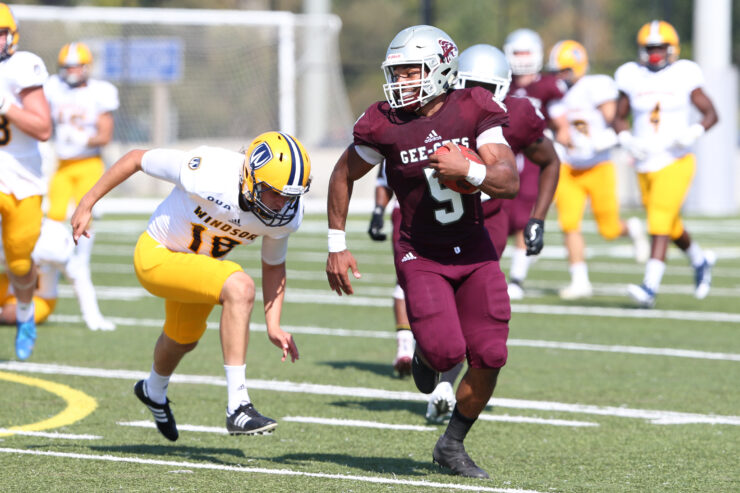Restructuring of U Sports conferences considered as potential option
It’s been almost one year since a Gee-Gees varsity team last played a competitive match. Between then and now, a lot has changed in the global sport scene as the COVID-19 pandemic has taken a hold of the world.
With the anniversary mark quickly approaching, the Fulcrum sat down with Sue Hylland, director of Varsity Athletics, to discuss how the department is using their down-time as the 2021 winter semester kicks off.
Their primary focus? Organizing their future plans for the upcoming fall season.
“Our ultimate goal is to get back to competing next fall in some way,” said Hylland. “Our work doesn’t stop … it’s amazing how busy it is because you’re planning for things that could change all the time.”
The newly-created COVID-19 Implementation Committee continues to lead the way towards getting athletes back to doing what they love in the safest way possible.
The department and committee continue to hold regular meetings with a “core group of medical doctors” along with U-Sports, Ontario University Athletics (OUA) and Réseau du Sport Étudiant (RSEQ).
“We’re constantly talking with U-Sports, with OUA and with RSEQ … [on] what we’re all going to be focused on now, and the work that’s being done now,” explained Hylland. “[Asking] ‘How are we going to get back to playing next fall?’ ”
The idea that seems to have piqued the most interest from the conferences is a restructuring of the current competition format.
“We’re doing all sorts of consultation analysis about [whether we should] shorten the seasons, fewer games, make sure there’s no overnights. ‘Do we have to adjust the conferences a little bit, to make it simpler, smaller conferences, so you’re not traveling as much?’ There’s a lot of variables that we have to look at.”
“Hopefully, those things will be tidied up for early spring so that we’ll have an idea of what it could look like next fall, obviously, subject to whether or not we’re in lockdown or not right or there’s other restrictions.”
While future plans continue to be discussed, Hylland reiterated that the current task for the winter semester is to continue adjusting to the various COVID-19 protocols implemented by the federal government, provincial government and Ottawa Public Health.
Varsity Athletics has “about 900 people cleared to be on campus for training, some of [which] are coaches, but [a] large majority are athletes” and since mid-July have had “about 3,500 training sessions … which probably represents about 13,000 to 15,000 overall participants.”
In order to participate, there was a strict and vigorous, yet necessary, accumulation of steps. Each individual was required to attend mandatory orientation sessions about COVID-19 protocols and sign off on an acknowledgement form. The department also tracks and traces everyone who attends practice and the amount of people present.
Hylland confirmed they have only had eight positive COVID-19 cases but “none of them are because of sport training” and instead, were contracted outside Varsity Athletics. Five of the total positive cases were from members of the Gee-Gees football team after not following self-isolation rules in October 2020.
“The amount of positive COVID-19 cases we’ve had is minimal compared to the activity we’ve had and so that means our protocols are working … so that’s good news,” said Hylland.
With the current Ontario lockdown, nobody is permitted to train on campus as per provincial restrictions — forcing all teams to revert to online training again.
Hylland explained the transition can be difficult in contrast to a usually jam-packed schedule, though it’s nothing that both the teams and the athletes can’t handle.
“We’re having to transition back to the way we were back in March, April and May, where a lot of the workouts and the activity [is] done online,” said Hylland.
“Is it hard for the student athletes and for the coaches, and all of us who are used to going nonstop from mid August to the end of April with activity and events? Yes, it’s hard, but we’ve had to keep a focus and like all good athletes, you get knocked down and you bounce up and you deal with the adversity. So that’s how we’re kind of trying to manage it.”
Overall, there is still potential, and hope, to return to competition in the fall.
“2021 is hopeful, and I think there are some good things coming that will see us do some form of competition in the fall next year in some way,” said Hylland. “It may not look the same exactly, but it will be something.”






